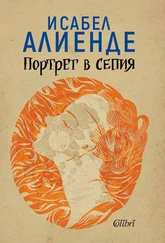A Long Petal of the Sea is a work of fiction. Names, characters, places, and incidents are the products of the author’s imagination, or are used fictitiously. Any resemblance to actual events, locales, or persons, living or dead, is entirely coincidental.
Copyright © 2020 by Isabel Allende
English language translation © 2020 by Isabel Allende
All rights reserved.
Published in the United States by Ballantine Books, an imprint of Random House, a division of Penguin Random House LLC, New York.
BALLANTINE and the HOUSE colophon are registered trademarks of Penguin Random House LLC.
Originally published in Spain in 2019 as Largo pétalo de mar
LIBRARY OF CONGRESS CATALOGING-IN-PUBLICATION DATA
NAMES: Allende, Isabel, author. | Caistor, Nick, translator. | Hopkinson, Amanda, translator.
Title: A long petal of the sea: a novel / Isabel Allende; translated from the Spanish by Nick Caistor and Amanda Hopkinson.
OTHER TITLES: Largo pétalo de mar. English
DESCRIPTION: New York: Ballantine Books, [2020] | “Originally published in Spain in 2019 as Largo pétalo de mar”—Title page verso.
IDENTIFIERS: LCCN 2019037428 (print) | LCCN 2019037429 (ebook) | ISBN 9781984820150 (hardcover) | ISBN 9781984820167 (ebook)
SUBJECTS: LCSH: Spain—History—Civil War, 1936-1939—Fiction. | GSAFD: Historical fiction.
CLASSIFICATION: LCC PQ8098.1.L54 L3613 2020 (print) | LCC PQ8098.1.L54 (ebook) | DDC 863/.64—dc23
LC record available at https://lccn.loc.gov/2019037428
LC ebook record available at https://lccn.loc.gov/2019037429
Ebook ISBN 9781984820167
International edition 9780593158425
randomhousebooks.com
Book design by Barbara M. Bachman, adapted for ebook
Cover design: David Mann
v5.4
ep
Contents
Cover
Title Page
Copyright
Epigraph
Part 1: War and Exodus
Chapter 1
Chapter 2
Chapter 3
Chapter 4
Part 2: Exile, Loves, and Misunderstandings
Chapter 5
Chapter 6
Chapter 7
Chapter 8
Part 3: Returns and Roots
Chapter 9
Chapter 10
Chapter 11
Chapter 12
Chapter 13
Dedication
Acknowledgments
By Isabel Allende
About the Author
Foreigners, here it is,
This is my homeland,
Here I was born and here live my dreams.
—PABLO NERUDA
“Return”
SAILINGS AND RETURNS
CHAPTER 1
1938
Get ready, lads,
To kill again, to die once more
And to cover the blood with flowers.
—PABLO NERUDA
“Bloody was all the earth of man”
THE SEA AND THE BELLS
THE YOUNG SOLDIER WAS PART of the “Baby Bottle Conscription,” the boys called up when there were no more men, young or old, to fight the war. Victor Dalmau received him with the other wounded taken from the supply truck and laid out like logs on mats placed over the cement and stone floor of the Estacion del Norte, where they had to wait for other vehicles to take them to the hospital centers. The boy lay motionless, with the calm look of someone who has seen the angels and now fears nothing. There was no telling how many days he had spent being shifted from one stretcher to another, one field hospital to another, one ambulance to another, before reaching Catalonia on this particular train.
At the station, doctors, paramedics, and nurses evaluated the soldiers, immediately dispatching the most serious cases to the hospital, and classifying the others according to the part of the body where they had been wounded: Group A: arms, Group B: legs, Group C: head, and so on. They were then transferred to the corresponding center with labels around their necks. The wounded arrived by the hundreds, and each diagnosis and decision had to be made in no more than a few minutes. But the chaos and confusion were misleading, for no one was left unattended, no one was left behind. Those in need of surgery were sent to the old Sant Andreu building in Manresa; those requiring treatment were dispatched to other centers; the remainder were left where they were, since nothing could be done to save them. Volunteer women would moisten their lips, whisper to them, and comfort them as if they were their own children, in the knowledge that somewhere else, another woman might be cradling their own son or brother. Later, the stretcher-bearers would take them to the morgue.
The little soldier had a wound in his chest, and the doctor, after a swift examination during which he could detect no pulse, decided the boy was beyond all help, and had no need of either morphine or consolation. On the battlefield they had strapped a bandage around his chest to protect the wound with an inverted tin plate, but nobody knew how many hours or days, how many trains ago that had been.
Dalmau was there to assist the doctors. Although it was his duty to leave the boy and attend to the next case, he thought that if the youngster had survived the shock, the hemorrhaging, and the journey to reach this station platform, he must really want to live; and so it would be a shame to surrender him to death now. Carefully removing the bandages, he saw to his amazement that the wound was still open and was as clean as if it had been painted onto his chest. He couldn’t understand how the bullet had shattered the ribs and part of the sternum, and yet had left the heart intact. Having worked for nearly three years on the side of the Republicans in the Spanish Civil War, at first on the fronts at Madrid and Teruel, and then at the evacuation hospital at Manresa, Victor Dalmau thought he had seen everything, become immunized to the suffering of others, but he had never seen an actual beating heart.
Fascinated, he watched the final, increasingly slow and sporadic pulsation until it ceased completely, and the little soldier finally passed away without a sigh. For a brief moment, Dalmau simply stood there, contemplating the red hole where the heartbeats had ceased. This was to be his most stubborn, persistent memory of the war: that fifteen- or sixteen-year-old boy, still smooth-cheeked, filthy with the dirt of battle and dried blood, laid out on a stretcher with his heart exposed to the air. Victor was never able to explain to himself why he inserted three fingers of his right hand into the gaping wound, gently grasped the organ, and squeezed it rhythmically several times, quite calmly and naturally, for how long, he couldn’t remember: perhaps thirty seconds, or perhaps an eternity. Suddenly he felt the heart coming back to life between his fingers, first with an almost imperceptible tremor, soon with a strong, regular beat.
“If I hadn’t seen it with my own eyes, I never would have believed it,” said one of the doctors who had approached without Dalmau noticing. He called over two stretcher-bearers, ordering them to rush the wounded youth to the hospital—this was a special case.
“Where did you learn that?” he asked Dalmau as soon as the men had lifted the little soldier onto the stretcher. The boy’s face was still ashen, but he had a pulse.
Victor Dalmau, a man of few words, told the doctor that he had managed to complete three years of medical studies in Barcelona before leaving for the front as an auxiliary.
“But where did you learn that technique?” insisted the doctor.
“Nowhere, but I thought there was nothing to lose…”
“I see you have a limp.”
“My left femur. I was injured at Teruel. It’s getting better.”
“Good. From now on you’ll work with me. What’s your name?”
“Victor Dalmau, comrade.”
“I am not your comrade. Call me ‘Doctor.’ Understood?”
Читать дальше











